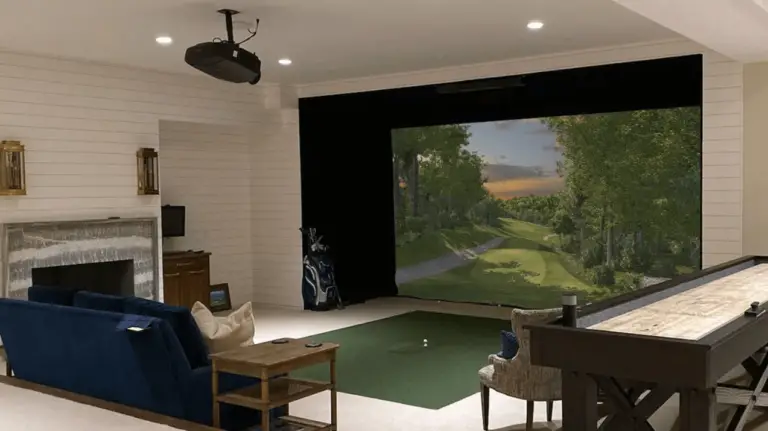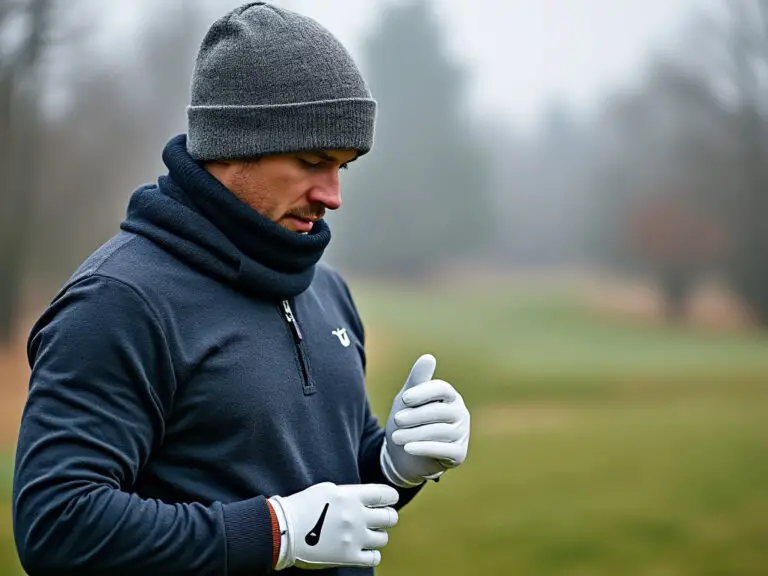10 Tips for Better Golf Scores

Shot tracking
Using shot-tracking technology can help golfers improve their scores in several ways. First, it can help them identify patterns in their shots, such as a tendency to slice or hook the ball. This can then be used to make adjustments to their swing to eliminate these tendencies and improve accuracy. Second, shot tracking technology can provide detailed information about the distance and trajectory of each shot, allowing golfers to better understand their strengths and weaknesses and adjust their strategy accordingly. Finally, shot tracking can help golfers better understand the course and make more informed decisions about club selection and shot placement.
Stop pin hunting
Pin hunting, or trying to aim for the pin (the flagstick marking the hole) on every shot, can be detrimental to your game because it often leads to poor shot selection and over-aggressive play. Instead of pin hunting, it’s important to focus on making smart, strategic shots that will set you up for success on the next shot, rather than trying to hit the perfect shot every time. This can help you avoid costly mistakes and improve your overall score.
Know your distances
Knowing your distances can help improve your golf game in a number of ways. For example, if you know the distance you typically hit each of your clubs, you can choose the right club for each shot. This can help you avoid overshooting or undershooting the green, which can save you strokes. Additionally, knowing your distances can help you avoid hazards on the course, such as bunkers or water hazards, by enabling you to accurately judge how far you need to hit the ball to clear them.
Use your driver
Using your driver more often can lead to better golf scores if you are able to hit the ball with a good degree of accuracy and control. The driver is typically the longest club in a golfer’s bag, so if you are able to hit the ball consistently well with the driver, it can give you a significant advantage on longer holes. This can help you reduce your overall score by allowing you to hit the ball closer to the hole and potentially set up a more makeable birdie or eagle opportunity.
Play the shot you visualize
When you have a clear mental image of the shot you want to hit, it can help you to focus on the key factors that will affect the outcome of the shot, such as the direction, distance, and trajectory. This, in turn, can help you to make better decisions about club selection, swing mechanics, and shot execution. Additionally, having a clear visualization of the shot can help to reduce anxiety and improve your confidence, which can also have a positive impact on your performance.
No three putts
There are several ways to avoid three putts on a golf course. One way is to make sure you are properly reading the green and selecting the right club for the shot. You can also try to visualize the path of the putt and aim for a spot on the green that will allow the ball to roll smoothly towards the hole. Another way to avoid three putts is to focus on your stroke and try to make a smooth, controlled putting motion. Finally, practicing your putting on a regular basis can help you improve your distance control and accuracy.
Know your misses
It’s important to know your most common misses because this will help you identify any flaws or weaknesses in your swing. By analyzing where your shots tend to go astray, you can pinpoint the specific areas of your swing that need improvement and make the necessary adjustments to improve your accuracy and consistency. Knowing your misses can also help you make better decisions on the course, such as choosing the right club for a shot or avoiding hazards that you tend to struggle with.
Play your game
It’s generally not a good idea to blindly follow the decisions of other golfers on the course, as each player’s skill level and strategy may be different. Additionally, the decision that worked well for one player in a particular situation may not necessarily work well for you. It’s important to make your own decisions based on your own abilities and the specific conditions of the course.
By sticking to your game plan, you can stay calm and composed, which can help you make better decisions and avoid making costly mistakes.
Do your research
Researching the golf course can help a golfer understand the layout of the course, including the location and challenges of each hole. This knowledge can help golfers plan their shots and make more informed decisions during the round, which can lead to lower scores. For example, a golfer who knows the location of the hazards on a course can avoid them, and a golfer who knows the length and slope of each green can choose the appropriate club for their approach shots. Additionally, researching the course can help a golfer understand the types of shots that are likely to be successful on a particular course, which can improve their accuracy and consistency.
Stick to your routine
Routines are important in golf because they help you to focus and prepare for each shot. Having a consistent pre-shot routine can also help you to reduce any anxiety you may have, as well as promote a positive mindset, which are both crucial for success on the golf course. By sticking to a pre-shot routine, players can also avoid rushing or making impulsive decisions, which can lead to mistakes and poor shots.






